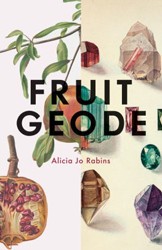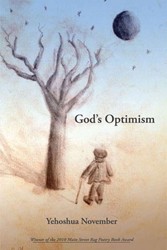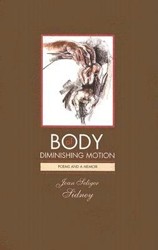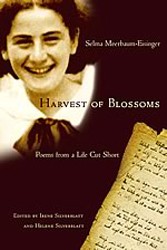Linda Stern Zisquit has lived in Jerusalem since the 1970s, when she and her husband made aliyah. She is among a number of Israeli poets who continue to write in English. Though she had been publishing poems in literary magazines through the ‘80s, her first book, Ritual Bath, was published in 1993. Over the next ten years, she published several more, in addition to translations of Hebrew poetry — among them, the Desert Poems of Yehuda Amichai, and two books by Yona Wallach. Havoc brings together her own poems from each of the previous books and since 2003.
From the first, much of Zisquit’s work has courted danger — this is not hyperbole: her most compelling poems are often provocative in their narrative point of view. The signature voice is of woman as illicit lover, as seductress, as betrayer and betrayed. Except for a long sequence of autobiographical poems related to the decline and death of her parents in The Face in the Window (2004) — and more recently a small collection, Ghazal-Mazal (2011), where the requirements of the ghazal form seem to have freed Zisquit to explore a sometimes lighter tone — her speaker has often been darkly fevered and intense. Some examples: “I lay on his wife’s bed as he / loosened and entered” (“Dead Center”); “If he does not look at her face / she will suffer, and if he dares / touch her, she will fly (“Daughters of Men”); ‘’When the war broke out I was unloosed / Whatever I believed, forgotten. / The ark that held us shattered, / leaving no links intact. /You turned to wave. / I waited for any man to knock at the door” (“Summer at War”); “I’ve pulled men under before / into the deep underside of water / left them there“ (“Green”). Poems such as these invite a voyeurism — but who is the I? who is the you? There are no names, no places, no dates: these are not the confessional or memory or diary-like poems in the manner of so many (too many?) American poets. Zisquit’s is not a poetry of self-disclosure; the poems may derive initially from some (unknowable) biographical impulse but that’s not an end, only the beginning: each of the poems is an exploration of the self’s selves, conflicting as they often can be, and so widen out beyond a singular self. The “I” possesses what Keats famously called “negative capability,” when one is “in uncertainties, mysteries, [and] doubt, without any irritable reaching after fact and reason.” The resulting poems can be — as they often are in Havoc—mysterious, enigmatic, elusive, edgy, and discomforting. They often throw us off balance, forcing us to question the generalizations and pieties we take for granted.
Related Content:
- Ghazal-Mazal by Linda Stern Zisquit
- These Mountains: Selected Poems of Rivka Miriam by Rivka Miriam and translated by Linda Stern Zisquit





